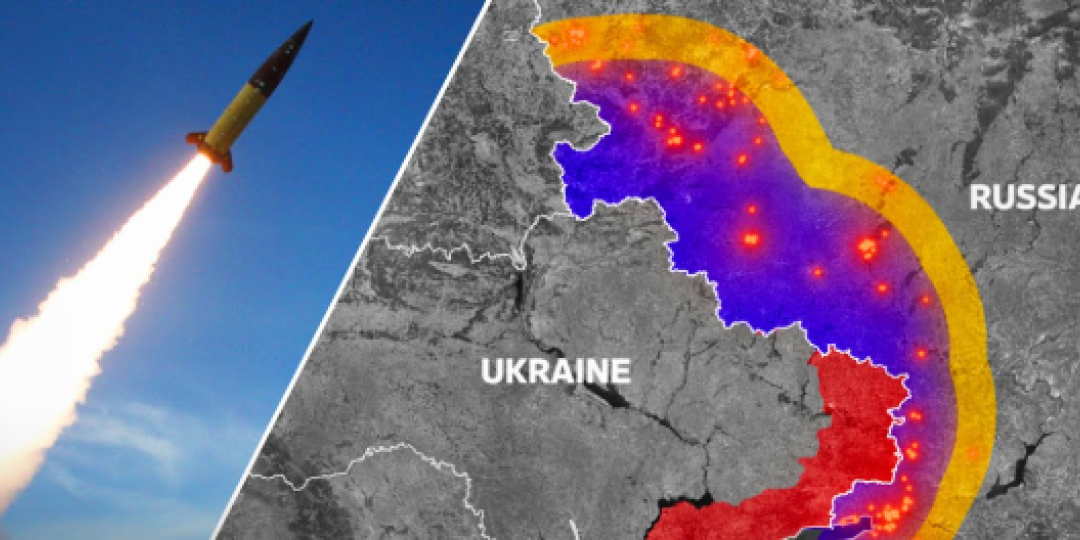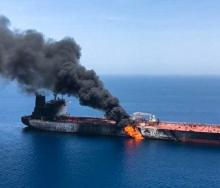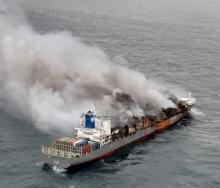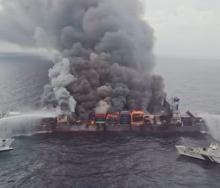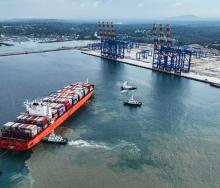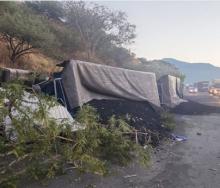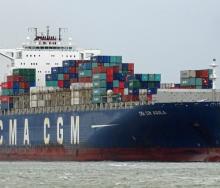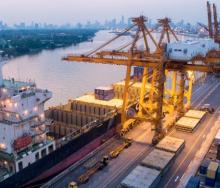A day after the Ukraine conflict reached the 1000-day mark on Wednesday, and long-range missiles penetrated Russian skies after Washington gave Kiyv the nod to escalate its US-backed firepower, supply-chain experts have warned that key components of the modern economy could be at risk.
While Russian President Vladimir Putin considers his nation’s response, having already indicated through his foreign minister, Sergey Lavrov, that the US is now directly involved in hostilities, Fortune magazine writes that “markets are still guessing as to what the conflict could bring next”.
Now, with the UK following suit, allowing Ukraine to use its Storm Shadow missile system against Russia, and with Putin having reconfigured certain intercontinental ballistic warfare undertakings between Moscow, Europe and the US, nuclear jitters are reverberating through the markets.
Marco Quiroz-Gutierrez writes that, for Ukraine to now have the ability to strike deep into Russian territory marks a significant reversal in policy by the US compared with the administration's stance just two months before the end of its term.
According to Russia’s Defence Ministry, Ukraine promptly acted on this authorisation by targeting a facility in the Bryansk region on Tuesday. In response, Putin reportedly lowered the nation’s threshold for the use of nuclear weapons, interpreted as a warning to Western powers.
Partly due to the increasing hostilities, all three major stock market indices fell early on Tuesday.
The Dow Jones Industrial Average dropped by approximately 450 points, while the S&P 500 declined by 0.5% shortly after markets opened. However, by the end of the trading day, the situation had shifted. The Nasdaq rose by 1%, partly driven by Nvidia’s earnings, while the S&P 500 posted a modest gain of 0.3%. Meanwhile, the Dow closed 0.3% lower, losing 120.66 points overall.
Economist Aleksandar Tomic, associate dean for strategy, innovation, and technology at Boston College’s Woods College of Advancing Studies, attributed the market fluctuations to uncertainty surrounding Russia’s potential response to Ukraine’s latest strike. Tomic noted that, while markets had generally been on the rise in recent weeks following President-elect Donald Trump’s victory, geopolitical tensions had recently introduced increased volatility.
He remarked that the unpredictability of Russia's retaliation had heightened concerns. Tomic explained that, when uncertainty arose, markets tended to respond accordingly. He observed that the situation in Ukraine had created an environment where investors were unsure how events might unfold.
Usha Haley, a professor of international business at Wichita State University, suggested that an escalation in the conflict could further disrupt global markets, particularly through its impact on semiconductor production. She highlighted that crucial resources for semiconductors, such as palladium and neon, were sourced from either Russia or Ukraine, and ongoing shortages could exacerbate production delays. Haley noted that such disruptions could ripple through supply chains, amplifying inflationary pressures and affecting industries reliant on these components.
Despite the concerns, Tomic argued that the war’s impact on markets might be overstated, as investors had largely accounted for the risks over the nearly four-year conflict. He suggested that other geopolitical factors, such as President-elect Trump’s proposed tariffs on foreign imports, could have a more substantial effect on market activity. Tomic speculated that only extreme scenarios, such as Russia launching missiles into Germany, would significantly alter the market landscape.
Amid the geopolitical uncertainty, safe-haven assets like gold experienced a 0.6% rise, while Bitcoin reached an all-time high of $94 000 before retreating.
Tomic suggested that Ukraine’s recent actions might be an attempt to secure strategic gains ahead of potential policy changes under Trump, who is set to take office in January. Trump has previously stated that he could end the Russia-Ukraine war within "24 hours". Earlier this month, a former adviser to Trump reportedly claimed that the president-elect would prioritise ending the conflict over Ukraine, reclaiming Russian-occupied territories such as Crimea. According to the BBC, prediction market Polymarket indicated a 38% likelihood of Trump resolving the war within his first 90 days in office.
While the war may have limited direct effects on US markets, its impact on Europe could be more pronounced. Germany’s foreign minister, Annalena Baerbock, reportedly said on Tuesday that the country would not be intimidated by Putin’s decision to lower Russia’s nuclear threshold.
However, European countries like Germany are more vulnerable to the conflict’s escalation due to their proximity, particularly if nuclear weapons are involved. Consequently, major indices in Germany, France, and Spain all closed more than 0.5% lower on Tuesday.
In a worst-case scenario, Tomic speculated that Putin might expand the conflict to Poland or Germany, potentially provoking NATO involvement or even launching a cyberattack against the United States. He questioned the extent of Russia’s capabilities in such situations, underscoring the uncertainty surrounding future developments.
